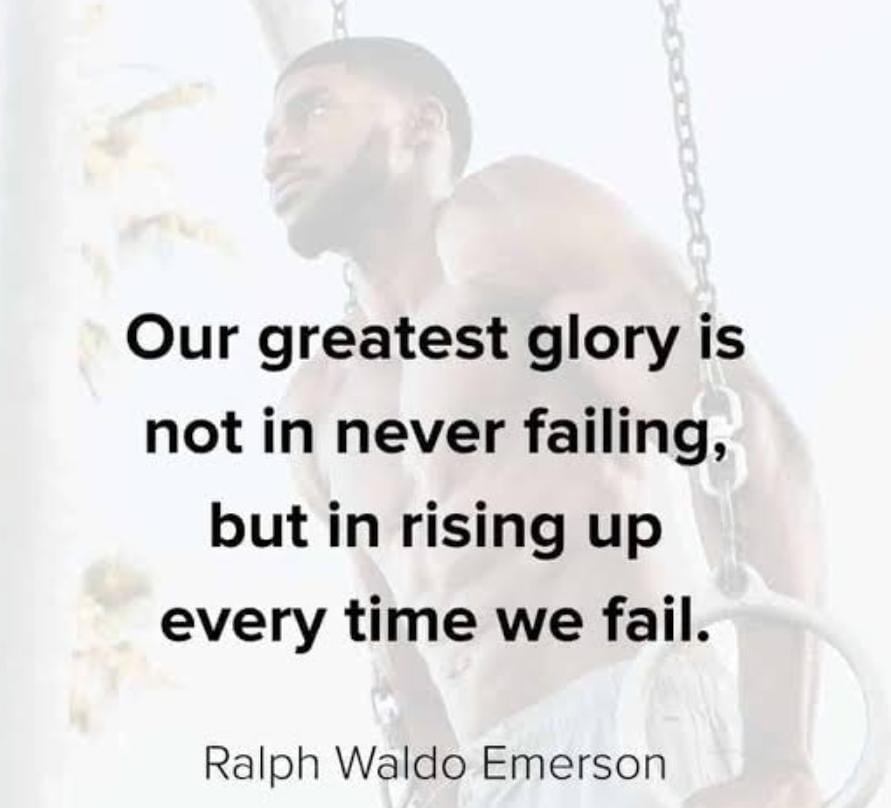2nd September 2024
One of the major contributors to success is how quickly you can recover from setbacks.
Falling & failing is inevitable in the life journey, but you need to rise every time you fall before the count of 10.
Rising every time is not only about physical strength but more about mental & emotional elasticity.
I recently heard a podcast of Leander
Paes, the Indian tennis legend widely regarded as one of the greatest doubles players in tennis history.
At one instance during the podcast, Leander said something really beautiful
“It’s okay to cry. It’s okay to feel lonely. It’s okay to be sad. It’s okay to feel that you are disappointed in yourself or in someone else. It’s okay.
But what’s important is the quick recovery time. You can’t dwell on that. Cry your tears, feel disappointed, feel your highs and your lows, and move on quick.
That recovery time between the actual act of losing and the actual act of winning, and moving to what the next task is, the shorter that period, the more successful you will be.”
This is such powerful advice from Leander – that of a “quick recovery time.”
It’s like emotional elasticity, the ability to stretch with life’s challenges and then snap back into shape.
Emotional elasticity is the ability to adapt to a wide range of emotional situations and respond appropriately.
Also, he did not advise us to suppress our feelings but to experience them fully and then move forward with intention.
Babies are often considered to be emotionally fluid because they can quickly transition between emotions without holding on to the past.
Leander actually echoed Charlie Munger’s philosophy, who once said: “Generally speaking, envy, resentment, revenge, and self-pity are disastrous modes of thought…Life will have terrible blows, horrible blows, unfair blows, it doesn’t matter. Some people recover and others don’t. There I think the attitude of Epictetus is the best. He thought that every mischance in life was an opportunity to behave well. Every mischance in life was an opportunity to learn something and that your duty was not to be immersed in self-pity, but to utilize the terrible blow in a constructive fashion. That is a very good idea.”
Think about it for a moment – how often do we get stuck in a loop of negative emotions, replaying disappointments or failures?
Leander Paes suggests a different approach. Feel it, embrace it, then let it go.
Now, this is not as easy as it sounds because it requires practice, patience, and self-compassion. But if we can master this balance between honouring our emotions and working on our resilience to be able to bounce back from our setbacks with renewed focus, we can move through life with grace and strength.
As the American professor and mindfulness teacher John Kabat-Zinn said, “You can’t stop the waves, but you can learn to surf.”
The next time you are hit by a wave of emotion, remember Leander’s and Charlie’s advice – do not avoid the wave, but surf it, & You will be fine & stay blessed forever.

